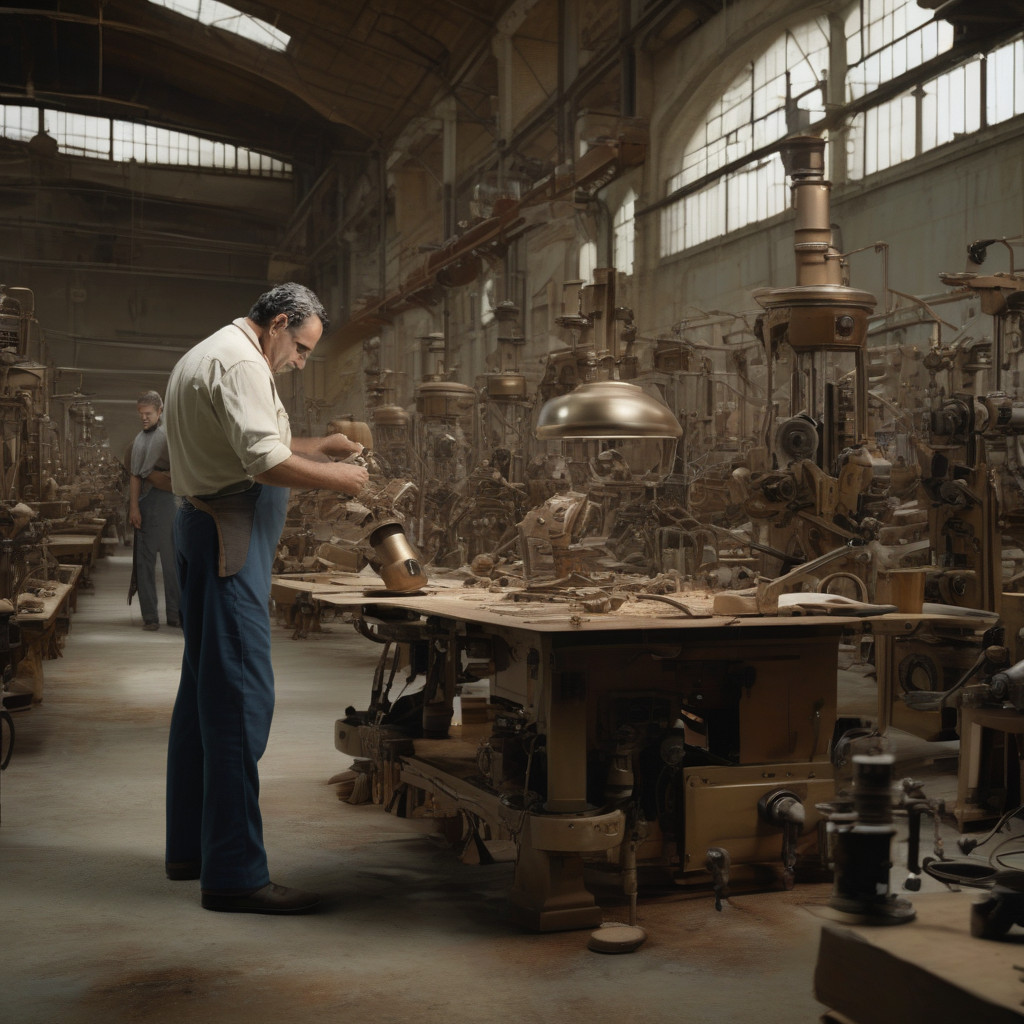The Future of ‘Made in Italy’: ‘Many Factories Will Disappear’
Italy has long been synonymous with luxury and quality in the world of fashion and design. The label “Made in Italy” carries prestige and tradition, representing craftsmanship and excellence. However, recent trends indicate a challenging road ahead for the country’s manufacturing sector. In the first three quarters of 2024, over 2,000 factories in Italy’s key luxury manufacturing sector closed their doors, signaling a significant shift in the industry landscape. The question arises: What does the future hold for ‘Made in Italy’?
Despite the closures and the looming threat of more to come, there is a glimmer of hope on the horizon. Innovative suppliers like Gruppo Florence are paving the way for a new era of Italian manufacturing. By developing new models and strategies to navigate the pressures of a rapidly changing market, companies like Gruppo Florence are proving that adaptability is key to survival in the face of adversity.
One of the primary factors driving the closure of traditional factories is the rise of fast fashion and mass production. Consumers are increasingly drawn to affordable, trendy clothing that can be quickly produced and easily replaced. This shift in consumer behavior has put immense pressure on traditional luxury manufacturers to compete on price and speed, often at the expense of quality and craftsmanship. As a result, many factories that could not keep up with these demands have been forced to close their doors.
In response to these challenges, companies like Gruppo Florence are embracing innovation and technology to stay ahead of the curve. By investing in automation, digitalization, and sustainable practices, these forward-thinking suppliers are streamlining their production processes, reducing costs, and minimizing their environmental impact. For example, Gruppo Florence has implemented state-of-the-art robotics and AI systems in their factories, allowing them to produce high-quality goods at a fraction of the time and cost compared to traditional methods.
Moreover, these innovative suppliers are also focusing on diversifying their product offerings and expanding into new markets. By tapping into e-commerce platforms and reaching a global audience, companies like Gruppo Florence are not only surviving but thriving in a rapidly evolving industry. They understand the importance of staying agile and adaptable in the face of changing consumer preferences and market dynamics.
While the future of ‘Made in Italy’ may seem uncertain, it is clear that the key to survival lies in innovation and forward thinking. Companies that are willing to embrace change, invest in technology, and expand their horizons will be the ones that shape the future of Italian manufacturing. The traditional craftsmanship and heritage that Italy is known for can still thrive in this ever-changing landscape, as long as companies are willing to evolve with the times.
In conclusion, the closure of over 2,000 factories in Italy’s luxury manufacturing sector is a wake-up call for the industry. However, it also presents an opportunity for reinvention and growth. Companies like Gruppo Florence are leading the way in redefining what ‘Made in Italy’ means in the 21st century. By combining tradition with innovation, they are setting a new standard for Italian manufacturing that is both sustainable and successful.
innovative, luxury manufacturing, Italian fashion, Gruppo Florence, market trends












